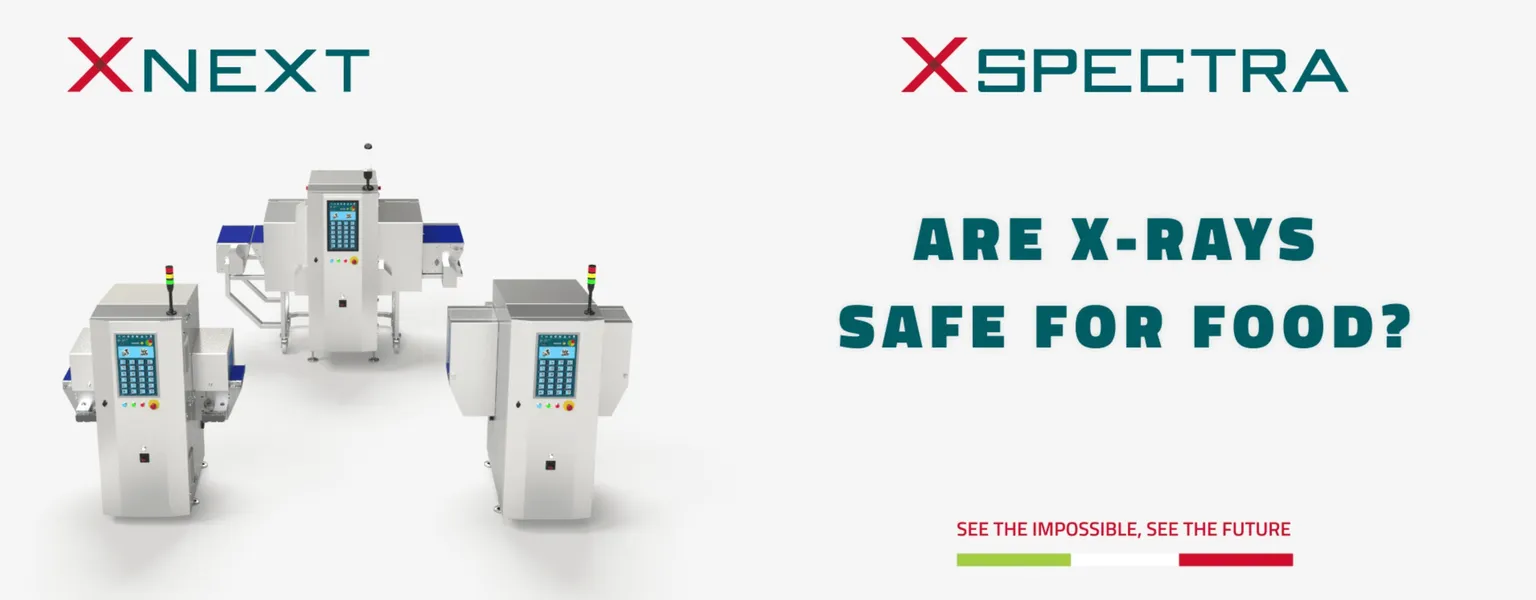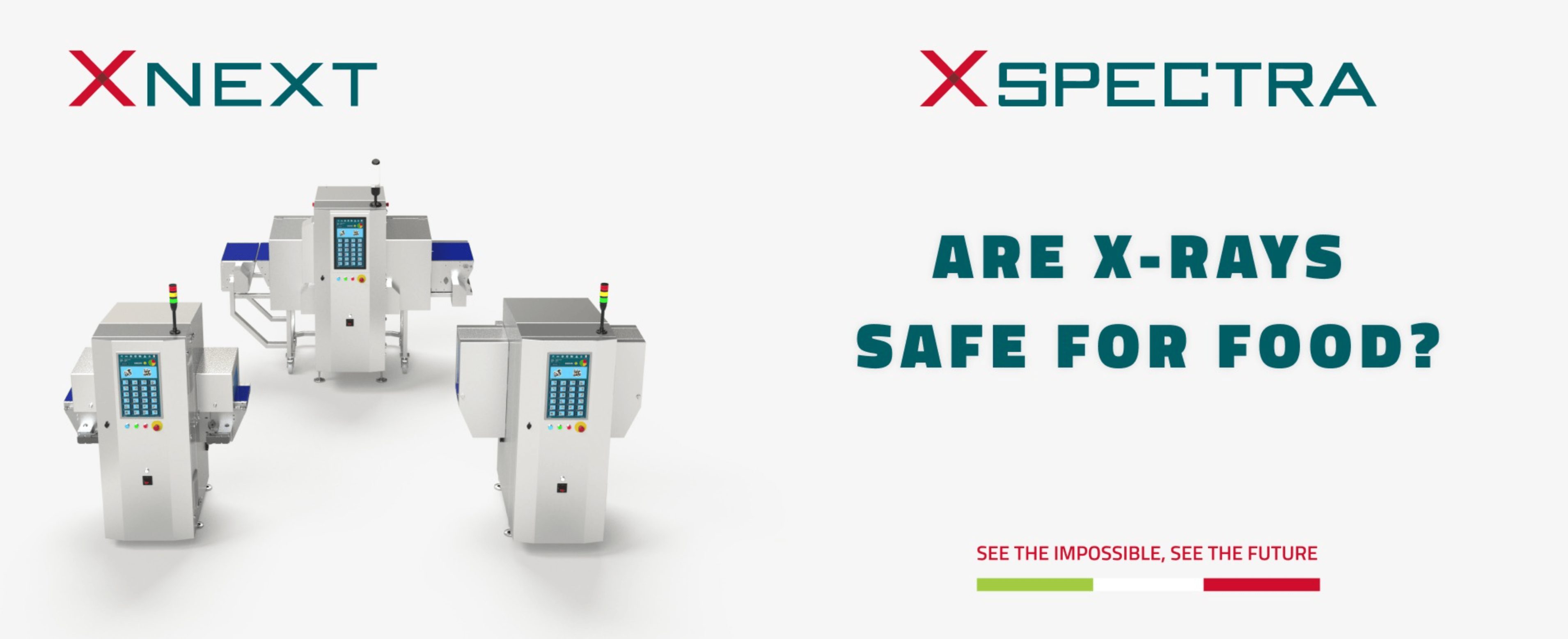Xnext - Are x-rays safe for food?

Supplier News
One of the biggest misconceptions about X-rays is that food can absorb radiation and become dangerous for consumers' health. The reality is different since there is non correlation between food inspection and radiation diseases but there are more advantages than disadvantages to using x-rays for food safety.
X-rays: a brief introduction
X-rays are a form of electromagnetic radiation, like light waves or radio waves. All types of electromagnetic radiation are part of a continuum called the electromagnetic spectrum.
Most parts of the electromagnetic spectrum are used in science for spectroscopic and other probing procedures, in which matter can be studied and characterised through the use of radiation. X-rays are used for many purposes, from medical examinations to the identification of contaminants in foodstuffs and other materials.
The wavelength of x-rays enables them to pass through materials that block out visible light to a greater or lesser degree. The transparency of a material to x-rays is broadly related to its density, which is why x-ray inspection is so useful in the food industry: the denser the material, the fewer x-rays can pass through. Hidden contaminants, such as glass and metal, show up under x-ray inspection because they absorb more x-rays than the surrounding food.
X-rays for food safety
Nowadays food producers must follow strict food safety regulations also due to the increased attention of the customers on the quality and safety of the food they eat.
X-rays can offer a high level of accuracy in detecting all types of foreign bodies from high to low-density: plastics, bones and cartilages, insects, rubbers and wood.
Moreover, x-rays can offer a wide range of quality checks like filling levels, packaging integrity, missing or non-compliant products, integrity of sealings.
XSpectra, Xnext patented technology can easily manage all the inspections and the quality checks we already mention and can also detect glass in glass and metal in metal.

X-rays are safe
Even if nearly all of the food is scanned through the x-rays there are no health risks in terms of radiation diseases.
X-rays are one of many sources of natural radiation. The combined effect of all these sources is called background radiation, to which humans have been exposed since the beginning of time. The background radiation represents 82% of the total radiation every person receives every year so the quantity of radiation that comes from food inspection is irrelevant.
The inspection of every product is performed in a few milliseconds so the energy of radiation absorbed by food is really low.
X-ray inspection systems are safe also for production line operators because machines are built with stainless steel material and safety protections are installed like lead curtains suitable for food contact that block radiations that can escape from openings for the passage of products
X-rays are allies not a menace
In conclusion, X-ray inspection used in the food industry must not be associated with radioactivity. Performing an analysis using X-rays on any type of product (food, pharmaceuticals, etc.) does not cause radioactivity, just as a human being does not become radioactive after an X-ray in a hospital. The biggest risks for consumers' health come from contaminated food due to chemical contaminants or foreign bodies rather than the x-rays scanning. From this perspective, x-rays can be an ally to food safety rather than a threat.
Xnext knows perfectly how to work with x-rays and will continue to do it in order to offer the best food safety solution to the food industry thanks to XSpectra, its patented inspection technology.
This article was originally published by Xnext.





